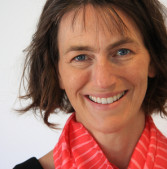Past Undergraduate Fellows
Greater Good Science Center Undergraduate Fellowships nurture young scholars' interest in the science of social and emotional well-being. Through the GGSC's fellowship program, many of these fellows have conducted undergraduate research of exceptionally high caliber, and have used their fellowship as a stepping stone to even deeper engagement with topics like compassion and altruism, often through graduate study.
Read on for an overview of past undergraduate fellows' work.
2024-2025 Fellows
-
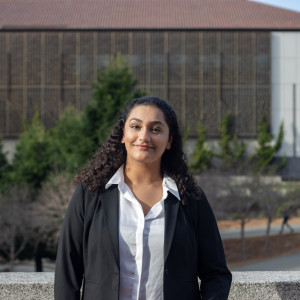
Selina Bilal
Selina Bilal is a junior at UC Berkeley majoring in Psychology and Cognitive Science, with minors in Music and Developmental Psychology. She actively contributes to research at RASCL, as well as the Berkeley Social Interaction Lab and the Social Origins Lab. She is also a researcher for the Science of Happiness Podcast, a proctor at the Disabled Students’ Program, and Academic Liaison for Psi Chi at Berkeley. Originally from Pakistan, Selina’s research is driven by her desire to create a positive impact. She’s actively working towards building an awe-based intervention for Berkeley students, which represents an exploration into the profound impact of awe on holistic wellbeing and personal growth. Through immersive experiences and reflection, this intervention aims to equip students with practical tools and strategies to integrate awe-inspiring encounters into their daily lives.
2023-2024 Fellows
2022-2023 Fellows
-
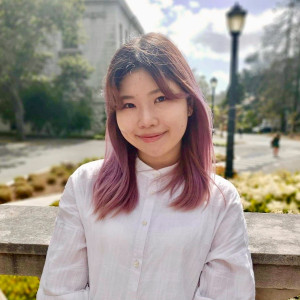
Linda Kawamoto
Linda Kawamoto is a fourth-year international student from Japan majoring in psychology. She works with Professor Clayton Critcher at the Haas School of Business. Her research investigates how group size affects the level of the involuntary excluder effect (IEE), where a socially excluded person sees included persons as though they are actively excluding them. Her project will measure the robustness of the IEE by systematically varying the number of included and excluded members. It will also test the mechanism of IEE by measuring how one’s role as an included or rejected person changes one’s construal of the ambiguous exclusion. Overall, she hopes that her research will contribute to societal well-being by tackling ambiguous social exclusion.
-
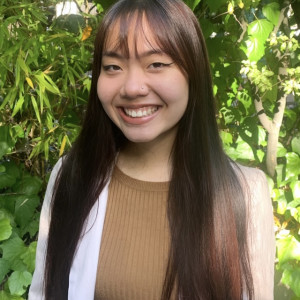
Christina Li
Christina Li is a fourth-year psychology major at UC Berkeley, and she is interested in the psychological underpinnings of power, privilege, and inequality. Her current project investigates a phenomenon known as “power projection,” which was documented by Professor Arman Catterson and shows that a person’s power and status are positively related to their perception of another person’s power and status. The study focuses on how people’s self-perceptions of power influence the way they perceive others’ power in ways that might influence prosocial behavior. Christina’s research aims to advocate and help implement effective mental health policies and resources for marginalized communities.
2020-2022 Fellows
-
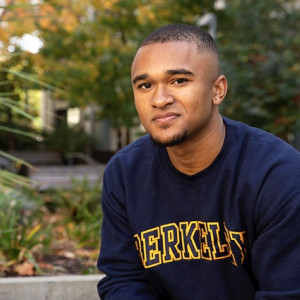
Kai Koerber
Kai Koerber is a second-year intended Data Science major at UC Berkeley, and he and Professor Dacher Keltner started a research project that aims to identify “the sound of emotion” in a vocal context. This project directly aims to assess how much vocal expression can tell us about the emotions that we are feeling in the present moment. He believes that having a window into how we feel in any given moment, as well as having info on how often we feel this way, will give us more control over our states of happiness, awe, and relaxation. Kai is interested in bridging the gap between humanity’s emotional and technological experiences, and as such aims to one day start a company that successfully bridges that gap.
-
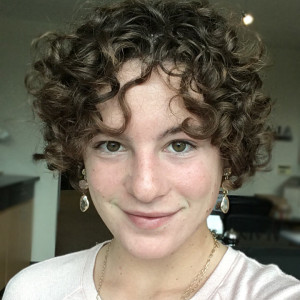
Rachel Schten
Rachel Schten is a third-year Urban Studies major at UC Berkeley. She works as Department of City and Regional Planning Chair Professor Karen Chapple’s research and administrative assistant and has worked on various projects studying topics from accessory dwelling units (ADUs) to the impact of climate change mitigation investments on displacement. She intends to pursue a dual law-public policy degree after graduation. Her project focuses on both the familiar and novel issues in emergency and disaster planning for people with disabilities revealed by the COVID-19 pandemic. For her study, she will conduct interviews with emergency planners, people with disabilities, and employees of disability organizations in the San Francisco Bay Area.
2019-2020 Fellows
-
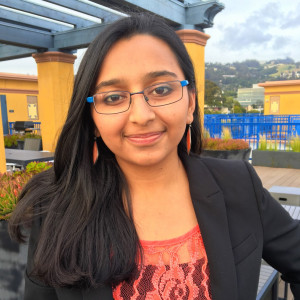
Merusha Mukherjee (Goldberg Fellow)
Merusha Mukherjee is a second-year psychology major and a senior research assistant/project leader at Professor Dana Carney’s Micro Lab in the Haas School of Business. Her research inquiries into human lie detection accuracy. Interestingly, the project examines deception in the previously unexplored context of romantic attraction, i.e., how lying affects attraction levels. Her work aspires to understand how truth-telling, trust, and cooperation relate to adaptive social functioning. By understanding the etiology behind lie detection, efforts can be directed towards developing interventions for those most lied to. Merusha seeks to pursue a Ph.D. in Social and Personality Psychology with the ultimate goal of working in forensic psychology. She’s interested in consulting in criminal court, investigations, and interrogations.
2016-2017 Fellows
-
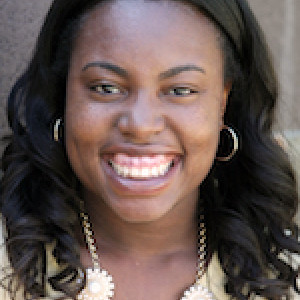
Hailey Gordon
Mental Disabilities - Cognitive NeuroscienceHailey Gordon’s research project will explore shared-attention mechanisms, which are thought to have wide-ranging implications for memory, motivation, judgment, emotion, and behavior. It will present validated emotionally evocative stimuli to either two participants together, or each individually, while acquiring electroencephalogram data (EEG) from sensors on the scalp. Using this dual EEG setting, Hailey aims to determine whether and how shared experience of elicited emotion measurably differs from solo experience within the context of well-established EEG indices of attention.
After her senior year at UC Berkeley, she plans to continue research in the field of mental disabilities, specifically autism, molding together her coding and analysis skills and behavior results to develop groundbreaking and stimulating computer programs for individuals who exist in a world where their insightfulness could be considered untapped potential, rather than absent.
-

Vivian Lo
PsychologyVivian Lo is a fourth-year Psychology major and a research assistant with Professor Sameer Srivastava and Professor Dana Carney in the Haas School of Business. Her research project seeks to inform how to better accentuate the tendency for people to be cooperative in order to increase reciprocity within social networks. Furthermore, the project seeks to inform the development of better career preparation programs, and to contribute to the growing body of knowledge on promoting prosocial behavior in professional and organizational settings. She is interested in the areas of positive psychology, social networks, and organizational behavior, and will be pursuing a Ph.D. to study these topics.
2015-2016 Fellows
-

Kelsey Clausing
Molecular and Cell BiologyKelsey is a fourth-year Molecular and Cell Biology major as well as a double minor in French and Dance. She is a research assistant in Professor Daniela Kaufer’s lab, where her project ultimately seeks to understand the neural basis of empathy. This research investigates the influences of the stress response on prosocial behavior in the rodent model and can thereby provide important translational applications to Autism Spectrum Disorders. In the future, she hopes to improve the lives of individuals affected by such disorders in continuing to contribute to this field as she pursues a Ph.D. in graduate school.
-
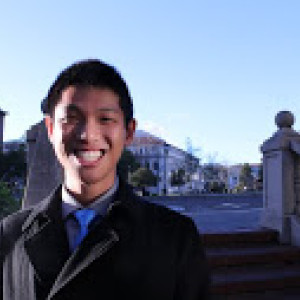
Alex Mabanta
Political Science and RhetoricAlex Mabanta is a senior double majoring in Political Science and Rhetoric. He also serves as a commissioner for the City of Berkeley. His research investigates which qualities of civil institutions foster or reduce social well-being among diverse populations. In particular, he aims to contrast police behavior, such as racial profiling, with perceptions of the police from different communities within Berkeley and neighboring cities. This study will provide empirical insights for Berkeley city officials who are working to reform law enforcement to better serve the people of Berkeley.
2014-2015 Fellows
-

Jeni Stiso
Cognitive Science & Molecular Cell BiologyJeni is a sophomore Cognitive Science and Molecular Cell Biology major with a minor in music. She is currently a research assistant for the Knight Lab, and is also involved in various music groups on campus. She is conducting research that explores the neurological basis of interpersonal distance (hormone levels and various event related potentials) and how they can be used to create more effective treatments and diagnoses of Social Anxiety Disorder. In the future, she hopes to be able to continue to do medical research and to be able to improve the quality of life for many people suffering from neurological diseases.
2013-14 Fellows
-
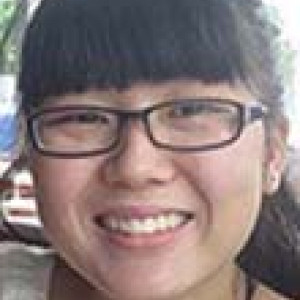
Suetching “Kelly” Yu
Integrative BiologyKelly is a fourth year pre-veterinary undergraduate majoring in Integrative Biology, with a deep love for animals and passion for scientific inquiry. To this end, she is working in Dr. Daniela Kaufer’s Lab on a project that entails studying the neural basis of pro-sociality in a rodent model system. The project’s goal is to modulate certain classes of limbic neurons via optogenetic means to facilitate empathic or helping behaviors. She believes the scientific study of the positive qualities of the mind such as compassion and cooperation will benefit both the society at large and individuals suffering from neuropsychiatric disorders such as depression, anxiety, and autism.
-
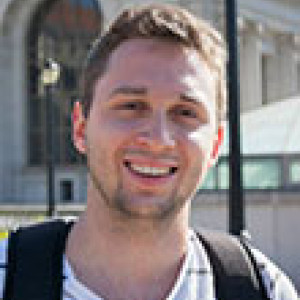
Nikolay Nichiporuk
PsychologyNikolay Nichiporuk studies psychology at UC Berkeley. He was born in the Ukraine and moved to the United States when he was 8 years old. His research interests focus on understanding normal and abnormal human behavior and he plans on continuing his education at a graduate school in clinical psychology. His current project asks whether the powerful are more likely than the powerless to help a victim in an emergency situation when bystanders are present. He will study the bystander effect—where a victim is more likely to get help from one person as opposed to a group of people—by means of a controlled experiment and attempt to understand how power moderates the effect.
2012-2013 Fellows
-
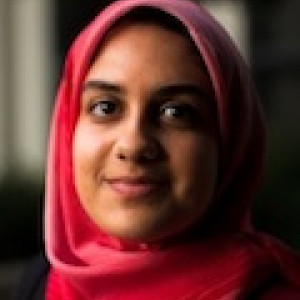
Lameese Eldesouky
PsychologyLameese Eldesouky is a fourth year undergraduate majoring in Psychology and minoring in Philosophy. She is currently a research assistant in Professor Oliver John’s Berkeley Personality Laboratory where she investigates individual differences and emotion regulation strategies such as expressive suppression and cognitive reappraisal. Her Goldberg Fellow project, “The Intrapersonal and Social Benefits of Increasing Emotional Awareness”, seeks to understand how emotional awareness plays a role in suppression use and how increasing awareness may decrease suppression use. Her ultimate goal is not only to determine the causal link between awareness and suppression, but also inspire targeted interventions for people who chronically suppress their emotions.
2011-12 Fellows
-
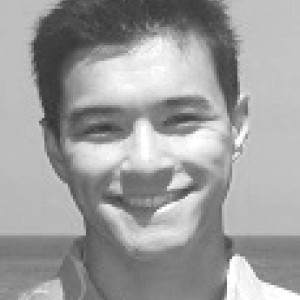
Andrew E. Yee
Interdisciplinary StudiesAndrew E. Yee, a native of California, is a fourth year premedical undergraduate in Interdisciplinary Studies, having switched from a biology major after taking a course in social psychology with Professor Robb Willer. He is a research assistant at UC Berkeley’s Evolab and Laboratory for Social Research. His Goldberg Undergraduate Fellowship project will explore the factors that contribute to “compassion fatigue,” which has been observed in health professionals and other caretakers who become exhausted after prolonged exposure to others’ suffering. In particular, he will be researching the relationship between compassion fatigue and different forms of empathy. Andrew anticipates that his research will be able to help professionals better understand the interactions of empathy and compassion within themselves, reducing their risk of burnout as they care for others.
2010-11 Fellows
-

Hannah Moore
Public HealthHannah Moore was born in Oakland, California, and attended Berkeley High School; she is now studying public health at UC Berkeley. Her Goldberg Undergraduate Fellowship project considered the factors contributing to higher incarceration rates than graduation rates in Oakland. Hannah’s research focuses on the historically violent social and political relationships between youth and the police in Oakland. She is currently producing a short documentary for which she interviewed four Oakland Youth, an Oakland community organizer/mentor, and the Librarian for Alameda County Juvenile Hall.
2009-10 Fellows
-

Liz Castle
PsychologyLiz Castle is an undergraduate psychology major studying affective neuroscience. Her current research takes advantage of the empathic, approach-oriented facets of compassion to investigate the broader concept of prosociality. Her Goldberg Fellow project, The Neurological Basis of Prosociality: An fMRI Study of Compassion, explores the neural basis of prosocial emotion by examining individual differences in dispositional traits in context of both central and peripheral nervous system response to compassion. Additionally, Liz is interested in the consequences of impaired emotional experience, and is investigating this in a lesion study of patients with orbital frontal cortex damage (an area of the brain responsible for social and emotional processing). By studying compassion in patients with deficits in social and emotional functioning, her project seeks to explore the relationship between prosocial emotion and social interaction. Ultimately, greater understanding of the biological mechanisms that underlie compassion and prosociality will generate important insight into which dispositional traits predispose an individual to prosocial tendencies, and how impaired compassion can affect healthy social interaction.
-

Vida Manzo
PsychologyVida Manzo is a fourth year undergraduate psychology major studying positive emotions. She began working as a research assistant in Professor Dacher Keltners’ lab during her third year and developed a true passion for the study of emotions. Her Fellowship project, Socioeconomic Status as a Moderator of Physiological Markers of Compassion and Judgments, explores the differential role that high and low SES environments play in increasing and or inhibiting positive attitudes towards prosocial behavior and compassion response. She further aims to investigate the mechanisms, such as judgment processes endorsed by high versus low SES individuals, in accounting for differential compassion results. Her research will help yield a better understanding of the contexts that are conducive for generating altruistic and compassionate individuals while simultaneously investigating the physiological processes (parasympathetic reactivity and vagal tone) involved in prosociality and compassion.
-
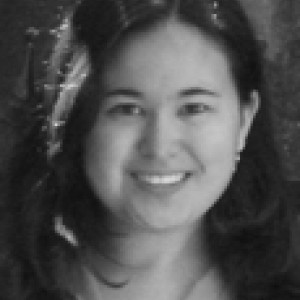
Sandra Nakagawa
Sociology & EnglishSandra Nakagawa is a fourth year undergraduate double majoring in Sociology and English. After taking a Social Psychology class in her sophomore year at Berkeley, Sandra developed a keen interest in research and currently works in Professor Robb Willer’s Laboratory for Social Research. Her research proposal builds on past work that links the observation of prosocial behaviors to greater feelings of trust. Instead of looking at trust between individuals, Sandra will be investigating how collectively experienced emotions impact group well-being and trust within groups. Using experimental methods, Sandra hopes to shed light on how witnessing prosocial behaviors, and the emotions elicited by that experience, are beneficial not just in interactions between individuals, but also to those between groups and societies.
-
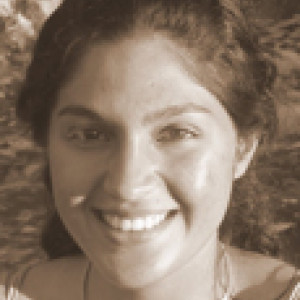
Pooja Upadhyaya
NeurobiologyPooja Upadhyaya is a fourth year undergrad studying Neurobiology. Over the summer of 2008, she was inspired by a student who had already saved many lives and improved the quality of life for a hundred others. From this, she realized that she too can make a difference — she is now embarking on a social service project wherein villagers can contact a doctor in an emergency through the use of cell phones. In the summer of 2009, and then again in December and January, she and her team will be piloting the project in Rajasthan, India. The team will be collecting data as to evaluate the effectiveness of how technology can improve access to health care, and then will use the knowledge gained to scale up and impact other underprivileged areas of the world.
2008-09 Fellows
-
Caroline Wilmuth
PsychologyCaroline Wilmuth is an undergraduate student double majoring in psychology and sociology. Her general research interests revolve around the social construction of an individual’s self-concept and its dynamic relationship to their social connections. Her research project, “The Effects of Power Dynamics on Individual and Group-Level Well-Being,” investigates the relationship between an individual’s self-esteem and their connectedness to others as a possible mediating variable of the “power paradox” — the phenomenon wherein the skills required to obtain power, such as empathy and social intelligence, are lost once a position of power is secured. The methodological design (which combines naturalistic and experimental methods) and theoretical scope (which spans from the individual to the group level) of this project exemplify Caroline’s multi-dimensional approach to social psychological research.
2007-08 Fellows
-
Donna Howe
PsychologyDonna Howe is a psychology major entering her senior year. From Placerville, CA, Donna spends a lot of time working with kids and teens; at Berkeley, she coordinates a youth mentorship program that matches Cal mentors with high school students from Oakland. Her research investigates how self-esteem and group identity relate to well-being among immigrant women. Her hypothesis is that perhaps it is not an individualistic, “I can accomplish things myself” style of self-esteem that correlates best with well-being (and reduced likelihood of depression), as is often assumed, but rather a style of self-esteem that involves feeling socially connected as a valuable community member.
2006-07 Fellows
-
Tanya Vacharkulksemsuk
PsychologyDespite much progress that has been made, negative racial attitudes and discrimination are still prevalent in America. Few studies have considered race within the context of friendships, more specifically the quality and closeness in same-race and cross-race friendships. Preliminary analyses of the UC Berkeley Interracial Friendship Interactions Project indicate that cross-race friends engage in similar activities (e.g. telling secrets, helping each other, borrowing) as same-race friends, yet they feel less close to one another. Given this, Tanya Vacharkulksemsuk’s research asked what are cross-race friendships missing that would make them feel closer? While some may argue that this lack of closeness is due to race itself, Tanya has worked to discover whether an individual’s sense of power (both overall and in the friendship) may function to limit the sense of closeness. It suggests that elevated power involves more freedom, which leads to approach-related positive emotions and uninhibited behavior which help friendships.
2005-06 Fellows
-
Rebecca Rialon
PsychologyRebecca Rialon’s fellowship research examined the factors in a child’s home life that might affect his or her capacity for empathy. Specifically, her study investigated the relationship between witnessing domestic violence and the ability to respond empathically to the distress of others. Her results suggested that preschool-age children who witness domestic violence are indeed less empathic than other children to the distress of a peer. Because of this deficiency in empathy, the study suggested that children who witness domestic violence might have a harder time developing and maintaining close relationships later in childhood, and perhaps longer. In shedding light on the social and emotional risks faced by children exposed to domestic violence, Rebecca’s work helps point the way toward more effective treatment and preventive programs for this young and developmentally vulnerable population. After majoring in psychology at UC Berkeley, Rebecca received her Master’s in Education and is now getting her Ph.D. in School Psychology from Columbia University.
2004-05 Fellows
-
Scott Chu
Public HealthGlobally, there are 10 million children who die from diseases that are easily preventable. Caring for the sick and dying child places an enormous stress and financial drain on families. Scott Chu researched the centricity of the family in creating health within the poorest of circumstances. He focused how, by transferring knowledge into the home, families are able to utilize information and use home-based methods to promote the health of their children.
-
Elizabeth Havstad
Urban StudiesThe urban poor in Brazil, as in much of Latin America, live in slums called favelas and, in the past two decades, have become centers of drug trafficking and violent criminal behavior. Structural characteristics of the economy and society do not often allow people from the favelas to lift themselves out of poverty, and as a result both the government and private organizations have created many programs with the goal of helping favela residents. Elizabeth Havstad researched organizations that try to improve the lives of favela residents by challenging, changing or just improving their situations. Among their efforts there have been successful projects, and unsuccessful ones. The purpose of her research was to define characteristics that distinguish the projects that work from those that do not. She conducted interviews with heads of NGOs, city officials, Church leaders, and community leaders to understand how they define the problems in the favelas, and how they believe their organizations help as well as with favela residents who participate in different programs and residents who do not participate in any programs.
-
Joseph Scalice
Interdisciplinary Field Studies MajorIn the Christian-Muslim conflict of the Philippines, countless lives have been lost in bombings, raids, and military campaigns. The roots of this conflict are political and economic in origin but have taken on a religious framework. Joseph Scalice’s research outlined the possibilities of and challenges for dialogue between Christians and Muslims in the Philippines and the achievement of an authentic peace. His project utilized the government documents at the Philippine National Archives. His investigation also examined the slowly emergent religious dialogue between Christians and Muslims in the Philippines, most specifically from the standpoint of grassroots communities founded on the ideas of liberation theology. Joseph synthesized the results into a statement of the history and current status of Philippine Christian-Muslim relations.
-
Rachel Stewart
PsychologyRachel Stewart investigated the quality of life of people with Spinal Muscular Atrophy (SMA) and how it is related to both the severity of their impairment and the extent to which they perceive themselves to be discriminated against and/or socially excluded because of their disability. Spinal Muscular Atrophy is a genetic neuromuscular disease which causes weakening of the muscles, often leading to the use of a wheelchair. The literature on people with physical disabilities has generally been dominated by discussions of medical concerns and health matters, but examinations of topics such as discrimination, social and physical barriers, and disability identity have been far less common. Her study added to that literature by examining the factors which affect the well-being and quality of life of individuals with Spinal Muscular Atrophy (SMA) through a quantitative and qualitative psychological study. She explored the level of stigma and discrimination experienced by people with SMA, as well as those factors which contribute to the reduction of social barriers and the improvement of understanding and acceptance (i.e. social support and disability identity). By focusing on this issue, she hoped to provide useful information to parents, educators, and communities to help improve the inclusion, well-being, and quality of life not only of people with SMA, but disabled people in general.
2003-04 Fellows
-
Whitney Brechwald
Anthropology & PsychologyStigmatization is a harmful and pervasive social phenomenon, resulting in degradation and discrimination. Previous research has suggested that stigmatizing conditions perceived as controllable elicit anger, little pity, and less willingness to help while uncontrollable stigmatizing conditions motivate little anger, considerable pity, and a greater willingness to help. In a further examination of previous research on reactions to stigma, Whitney Brechwald’s project examined sex differences in emotional and behavioral responses to anorexia nervosa as presented in a female student at UC Berkeley. Undergraduate participants read a vignette describing a female student with anorexia, for whom the disorder was primarily caused by one of four distinct factors (biological dysfunction; unhealthy familial environment; problems with personal control; or sociocultural pressures to be thin) and rated reactions along the dimensions of attribution, emotion, behavior and social distance. Whitney’s results indicated that female responses to the hypothetical, anorexic student revealed more anger and disgust, less willingness to talk to her, and less willingness to allow her to baby-sit a younger female relative. Her work suggests that sex differences in emotional, behavioral, and social distance ratings suggest that the sex of observer, rather than perceptions of how controllable anorexia is, may be critical in the stigmatization of an individual with an eating disorder.
-
Susan Feizzadeh
PsychologyHow does one become empowered and what would that entail? Susan Feizzadeh’s research project focused on ways we can empower students in urban schools and how we can encourage students to become involved and engaged in their communities. For the purpose of her study, empowerment refers a combination of understanding societal problems and having a feeling of self-worth and agency that will ultimately lead to community involvement. Through in-depth discussion about class, race, and gender, students at an East Oakland high school began to critically think about the problems surrounding their community and school. Participants filled out a series of questionnaires before and after the intervention. Results showed that students who participated expressed significantly increased levels of self-esteem and significantly increased levels of ethnic identity. Last, their intended involvement scores had a non-significant increase. The results indicated that this intervention was a step in getting students to recognize that they can be empowered to make social change. As part of our democracy, it is crucial that each individual has a sense of agency and contributes to the betterment of society. It is important that we continue to realize new and innovative ways to empower students. Susan hopes that, through continued investigation and program implementation, theory and practice can progressively come together to bring forth new insight on this topic.
-
Yulia Khouri
PsychologyArab and Muslim Americans, like other minority groups, have long faced problems with discrimination, but following the September 11th attacks this pattern became more intense, frequent and widespread, especially in the US. The anxiety created in the Arab and Muslim American communities was compounded by serious civil liberties concerns with the new “homeland security” policies and legislation as well as favorable media towards ‘rational’ discrimination. This project attempts to examine the socio-cognitive responses of Arab and Muslim Americans to the stereotypes evident in the post 9/11 popular American media. Her study investigated questions such as how do Arab and Muslim Americans negotiate their, now politically controversial, national and religious identity in the post 9/11 America? Does their collective and private self-esteem suffer as a result of these stereotypes? And lastly, are Arab and Muslim Americans more likely to develop the anxious expectations of rejection by the mainstream American population based on their ethnicity or/and religion? Results indicated the tendency of Arab and Muslim Americans to engage in the identity negotiations (e.g. enhancing the importance of their American identity and decreasing the importance or negating their Arab identity) when faced with Arab or Muslim stereotypes. Furthermore, her work suggest that both Arab and Muslim American individuals are significantly more likely to develop the anxious expectations of rejection by the mainstream American population.
-
Lia Kraemer
PsychologyTraditionally, research has conceptualized self-conscious emotions negatively by postulating that they serve as a detriment both to psychological well-being as well as to social relationships. Yet this research has not examined how these emotions may influence social interactions differently depending on one’s cultural beliefs. Lia Kraemer’s study postulated that self-conscious emotions influence European American and Asian American social interactions differently, with these emotions serving a more functional, positive role for Asian Americans, whose culture places greater emphasis upon these emotions. In her study, European American and Asian American romantic couples were asked to participate in a teasing interaction as well as discuss a past partner. The emotions of both partners were examined through self-reports and behavioral displays, with particular emphasis placed upon how the self-conscious emotions of the speaker influenced the emotional experience of the listener. The self-report data revealed that while European Americans responded to their partner’s self-conscious emotional experience by mirroring those same emotions and experiencing discomfort, Asian Americans not only experienced those same emotions, but also experienced more sympathy and concern. In this manner, self-conscious emotions may lead to positive social outcomes depending on cultural beliefs about these emotions. However, these findings were not replicated with the behavioral and verbal data, with Asian American listeners displaying less sympathy and concern in response to their partners’ self-conscious emotions.
-
Golnoush Monfared
PsychologyThe continuing expansions of violence in the Middle East, and the lack of progress toward a peace settlement have generated concern among American citizens as well as the international community. Since the September 11, 2001 terrorist attack and the United States’ pro-war resolution on using armed forces against Iraq, millions of people around the world have expressed their reactions by demonstrating both for and against the U.S.-led war. The aim of Golnoush Monfared’s research was to understand the reactions to the war on Iraq beyond individuals’ political convictions. Rather than classifying individuals into those who agree with war in general and those who disagree with it, her study used social-psychological methods to gain a better understanding of how individuals’ attitudes towards socio-political issues are affected by the features of the situation and by their level of empathy. The result of this study showed that individuals’ reactions toward war on Iraq were not influenced by their ability to take the role of, or put oneself in the position of others (cognitive empathy). Rather, their reactions were influenced by their feelings of warmth, compassion and concern for unfortunate people (affective empathy). Moreover, it was found that in self-threatening situations individuals were equally likely to endorse war regardless of their level of empathy. In contrast, in situations that threaten others but do not directly threaten the self (other-threatening situations), empathy played a significant role in individuals’ reactions to war. More specifically, in this situation, individuals low on empathy level were more in favor of war against Iraq while the individuals high on empathy level were less likely to endorse the use of military action to resolve such conflict.
-
Jamie Rowen
International and Area StudiesJamie Rowen’s work analyzed contemporary Buddhist practice and belief in relation to government policies in northern Vietnam since the creation of the Vietnamese nation in 1954. Most religious scholars cite Buddhism as the ethical and moral framework that sustained the peaceful nature of the Vietnamese people through the numerous conflicts in the region. In order to understand how different cultural values can contribute to peace she decided to analyze contemporary Buddhism in northern Vietnam and how such values adapt based on the political and socio-economic context in which individuals practice. When the communist government of Ho Chi Minh came to power, the leaders tried to limit Buddhism in order to promote communism as the state ideology. Jamie’s study suggests that the end of the communist state created a vacuum of ideological structure for the Vietnamese people, providing room for traditional ideologies to fill the void. She discovered that the practice of Buddhism has shifted along with the economic policies of the state that support public displays of wealth. Individuals pray to the Buddha and practice lifecycle events such as weddings and funerals in ways that reflect the shift in economic policy, spending more money on elaborate banquets and religious offerings as well as reverting to more superstitious practices to ask for success in the market. Her analysis supports the idea that Buddhism has provided an ideological framework that has aided the Vietnamese throughout their conflicted history. However, it also reveals the fact that one cannot essentialize or romanticize such an identity. Most individuals adapt their practices to reflect the variety of ideologies present in any given society. She concluded that, in order to manifest the peaceful elements of Buddhist ideology that can help through conflict, other ideological systems must manifest similar elements.
2002-03 Fellows
-
Sigrid Allen
American StudiesIn research, advocates emphasize conflict resolution education (CRE) benefits to schools and their communities. Sigrid Allen’s study collected information about how CRE training and practices were actually applied in public school settings and how it reflects American culture. Among those schools that offered CRE programs, her results indicated that there was a significant difference between the CRE practice and the ideal concept of CRE research advocacy. She found that, on average, schools tended to view CRE training as extra curricula activities and in most cases only offered isolated CRE components. CRE training was less present in lower class middle schools than in more affluent neighborhood middle schools. A closer look at CRE training and program implementations in selected schools showed that CRE, like other school reforms, did not lead to rapid changes in the educational environment; instead most CRE programs were molded into existing school structures and cultures. Educators tended to define negative student behavior as a symptom and used single CRE components as a tool to prevent the escalation of those symptoms, for example, the potential violence in student behavior. This student-oriented approach also reflected the situation that in most schools only one or two teachers were solely responsible for the peer mediation coordination, and curriculum-based CRE training was rarely translated into the overall school structure. Instead educators seemed to be satisfied with modified and isolated CRE elements that resulted in less violence and escalating conflicts among students. In those schools the full potential of complete CRE programs remains untested. The small numbers of schools that put effective programs in place tend to include the greater school community and focus on cooperative learning styles. Consequently, Sigrid argues, it is crucial that school adults and the communities around the schools also participate in the process towards more constructive interactions and adults modeling desired behavior. Otherwise the most successful CRE programs will be diluted and only marginally effective in transforming the school environments.
-
Kevin J. Braga
PsychologyThe literature on the formation of adult friendships has yet to discuss issues concerning the development of cross-cultural friendships. Kevin Braga’s study addressed three questions: (a) are members of collectivist cultures more likely to show patterns of self-disclosing and elicit more self-disclosure from others compared to members of more individualist cultures, (b) are members of collectivist cultures more likely to accurately perceive another’s emotion, and (c) how does the disclosure relate to how much an individual is liked by their partner six months later. Participants were selected from the campus housing and were instructed to disclose something not previously discussed before with a hallmate. After each disclosure, participants reported their own emotions as well as estimated their partners’ emotions. Independent judges rated the video-taped disclosure on items such as how intimate, personal, and positive, the overall interaction was. Kevin’s results suggested that Asian Americans disclosed in more light-hearted ways and were more accurate in perceiving their partners’ positive emotions such as content, happiness, and enjoyment while Caucasians were more in tune with their partners’ self-conscious emotions such as embarrassment and shame. He concludes that certain emotions are more relevant for one culture and may impact friendship development among members of different cultures.
-
Adam Chen
PsychologyWhile nature’s beneficial influences have been documented in the past, researchers have focused on the general valence of the emotion that is caused by nature. No research has been examined on the specific emotion(s) that may cause these effects to occur. Based on existing theories on positive emotions, Adam Chen predicted that awe will be an emotion felt when in nature and a moderating factor on nature’s influence on social judgment. Two groups of participants were tested on their levels of awe-proneness and social judgment: one group was taken to a naturalistic setting while another group was taken to an urban setting. The social acceptance rating was then compared for these two groups and between high-awe and low-awe participants in the two environments. Significant results did not occur but the significance level between high-awe and low-awe participants in the nature and urban environments was closer to significance than the significance level between the overall nature and urban environments. Adam’s work suggests a possible but weak interaction effects between awe, nature, and social judgments. His work concludes that more subjects are needed to get a more accurate account of the relationship.
-
Seinenu Thein
PsychologyPast research has linked self-esteem to many important constructs including happiness, life satisfaction, and subjective well being. Individuals with high self-esteem have been shown to experience fewer depressive symptoms, less anxiety, and demonstrate more of a willingness to persist in the face of extended failure. Despite widespread acceptance of the psychological importance of self-esteem during adulthood, most research on self-esteem has focused almost exclusively upon the years before and during adolescence. Of the studies that do exist on adult self-esteem, few are longitudinal in design. Many fundamental questions regarding the developmental course of adult self-esteem (including the longitudinal consistency of its correlates) therefore remain unanswered. Seinenu Thein’s study addressed the gap in the literature on self-esteem by examining the correlates of self-esteem at three distinct points in adult development. Preliminary analysis of the data does indicated that there is change in the level of self-esteem over time as well as changes in the correlates of self-esteem across the different age groups.
-
Nicole Wojtal
AnthropologyIncreasingly over the last twenty-five years, people living with cancer, especially women with breast cancer, have incorporated the cancer support group into their therapeutic networks of care. Nicole Wojtal’s study examined the support group as a socially and historically specific way to experience this disease. She asked the following research questions: How has the support group become institutionalized as a rehabilitative therapy for people with cancer? What does the support group do for people with cancer? How does it affect the experience of their disease? To answer these questions, she performed ethnographic fieldwork in two Bay Area cancer support groups. She found that, for the, first time, peer led support groups created a space for people with cancer to connect with one another and learn about their disease. Once researchers concluded that it was actually beneficial for people to discuss their experiences and acquire a repertoire of knowledge about their cancer, the support group became complementary to the health care system. Information and narrative work in tandem to allow support group members to better order and make sense of their chaotic and painful experiences and create new relationships of support and community. She also found that, while differences exist among group members and leaders, they identify with one another through the painful experiences that accompany having cancer. Support groups are collectives of people trying to make sense of what is happening to them, what will be best for their survival, how they can best care for themselves and what will they feel most comfortable doing. The positive experiences that members have and the social bonds that they form keep members coming back to group meetings. Support groups also fit well with dominant American ideologies of taking personal responsibility for health and healing and reinforce those ideas. She concluded that, although personal responsibility in health is highly valued in the United States, it is part of making sense of having cancer and gives people a sense of control at a time of uncertainty.
